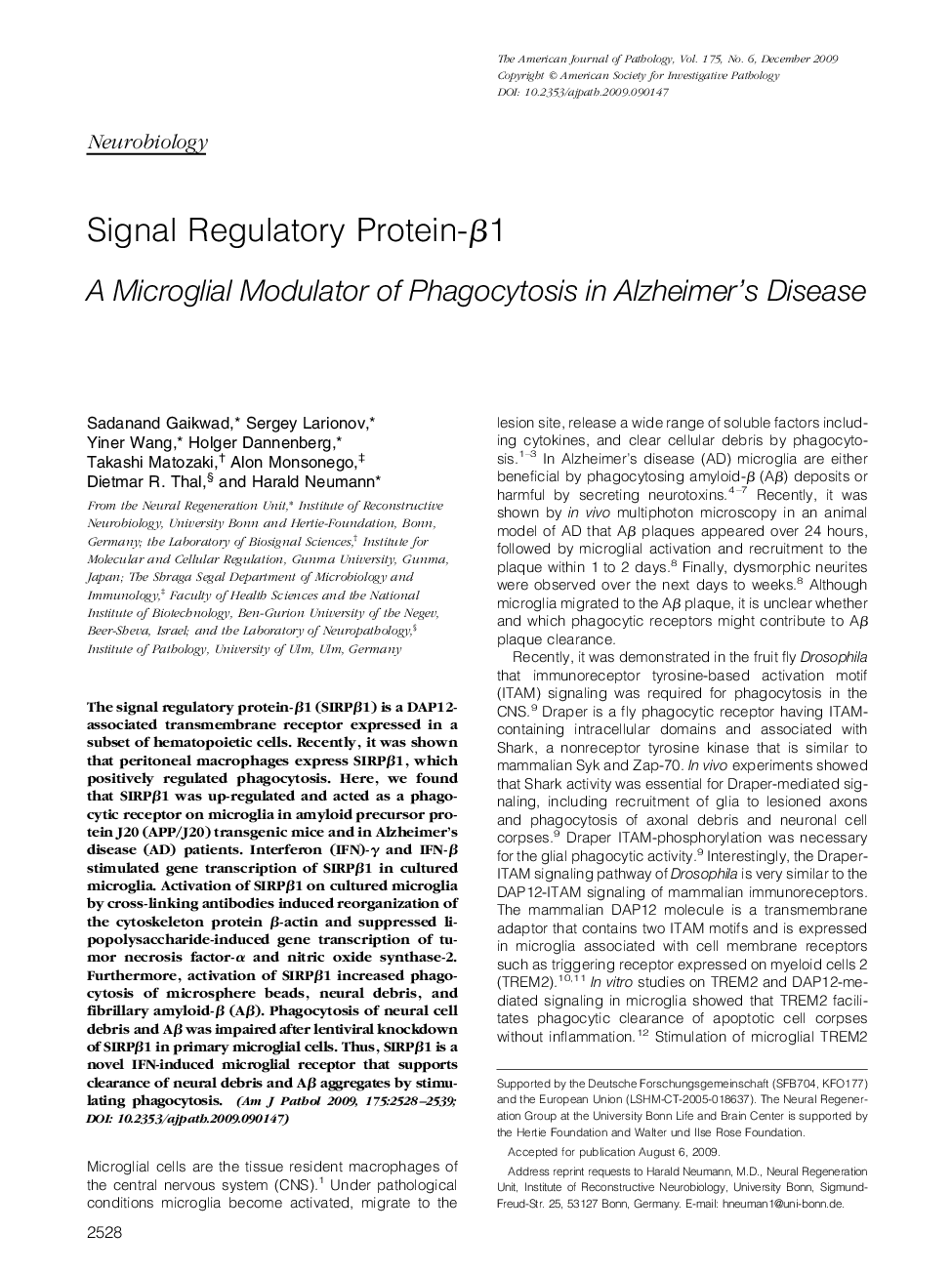| Article ID | Journal | Published Year | Pages | File Type |
|---|---|---|---|---|
| 5936421 | The American Journal of Pathology | 2009 | 12 Pages |
Abstract
The signal regulatory protein-β1 (SIRPβ1) is a DAP12-associated transmembrane receptor expressed in a subset of hematopoietic cells. Recently, it was shown that peritoneal macrophages express SIRPβ1, which positively regulated phagocytosis. Here, we found that SIRPβ1 was up-regulated and acted as a phagocytic receptor on microglia in amyloid precursor protein J20 (APP/J20) transgenic mice and in Alzheimer's disease (AD) patients. Interferon (IFN)-γ and IFN-β stimulated gene transcription of SIRPβ1 in cultured microglia. Activation of SIRPβ1 on cultured microglia by cross-linking antibodies induced reorganization of the cytoskeleton protein β-actin and suppressed lipopolysaccharide-induced gene transcription of tumor necrosis factor-α and nitric oxide synthase-2. Furthermore, activation of SIRPβ1 increased phagocytosis of microsphere beads, neural debris, and fibrillary amyloid-β (Aβ). Phagocytosis of neural cell debris and Aβ was impaired after lentiviral knockdown of SIRPβ1 in primary microglial cells. Thus, SIRPβ1 is a novel IFN-induced microglial receptor that supports clearance of neural debris and Aβ aggregates by stimulating phagocytosis.
Related Topics
Health Sciences
Medicine and Dentistry
Cardiology and Cardiovascular Medicine
Authors
Sadanand Gaikwad, Sergey Larionov, Yiner Wang, Holger Dannenberg, Takashi Matozaki, Alon Monsonego, Dietmar R. Thal, Harald Neumann,
